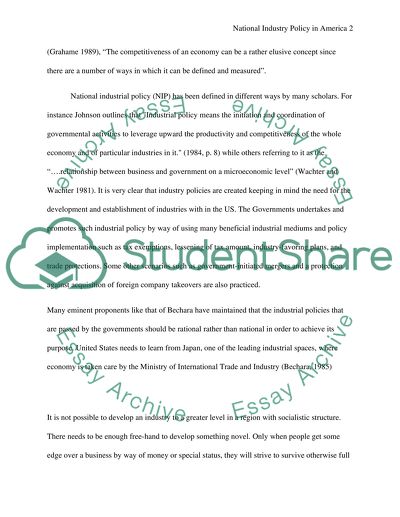Cite this document
(“National industrial policy in America Research Paper”, n.d.)
Retrieved from https://studentshare.org/miscellaneous/1429378-national-industrial-policy-in-america
Retrieved from https://studentshare.org/miscellaneous/1429378-national-industrial-policy-in-america
(National Industrial Policy in America Research Paper)
https://studentshare.org/miscellaneous/1429378-national-industrial-policy-in-america.
https://studentshare.org/miscellaneous/1429378-national-industrial-policy-in-america.
“National Industrial Policy in America Research Paper”, n.d. https://studentshare.org/miscellaneous/1429378-national-industrial-policy-in-america.


